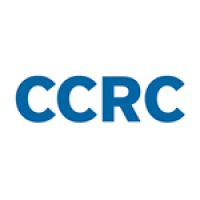By Katie Giardello and Jenny Schanker
The Michigan Center for Student Success (MCSS) has enjoyed a long and productive partnership with the Community College Research Center (CCRC). Both organizations sit at the intersection of research and practice in community college work, and both have been heavily focused on the national guided pathways reform movement in recent years. When CCRC asked us to consider a formal partnership on a project that combines research on humanities education in community colleges and ways faculty groups can work more closely on improving pathways to student success in humanities disciplines, we were all in!
Faculty Partnership at the Center
At MCSS, faculty engagement has been key to the success of two of our most recent statewide reform efforts: guided pathways and MiTransfer Pathways. Progress in our guided pathways work includes faculty-led efforts to map programs, strengthen math pathways, and overhaul developmental education. As part of the MiTransfer Pathways project, more than 60 Michigan colleges and universities came together to create 10 multi-institutional associate-to-bachelor’s degree transfer agreements in fields including biology, business, communication, criminal justice, and social work. With the overall goal of improving transfer student success, this project involved nearly a thousand faculty members from the two- and four-year sectors, generated positive energy, and created new paradigms to improve curricular alignment and communication within and across institutions.
Though faculty engagement has long been part of MCSS’s work, the COVID-19 pandemic has offered us an opportunity to expand connections with community college faculty members through a variety of digital engagement strategies. These connections have deepened the pool of faculty members contributing to MCSS programming; elevated faculty leadership across disciplines; and built momentum for a dynamic, faculty-led reform movement in Michigan.
We have seen this collaborative momentum flourish as Michigan community college faculty have responded to growing equity concerns that stem in part from renewed attention to systemic racial injustice and COVID-19’s disproportionate effects on low-income and non-White families. MCSS has had a front-row seat as these educators have updated pedagogy, instructional delivery modes, and inclusive teaching practices to improve equity in student outcomes. They have also taken on yeoman’s work to help students address financial instabilities. This critical work in addressing equity sets the stage for the next frontier of guided pathways reform work in Michigan community colleges.
New Energy for Humanities Study
The new Strengthening MiHumanities project, funded by the Andrew W. Mellon Foundation, will harness this faculty energy to build stronger pathways and improve student engagement in four disciplines: communication, English, history, and theater. Many consider humanities education fundamental to a well-functioning democracy and cornerstone of personal growth and fulfillment. Undergraduate humanities programs support broad learning outcomes—like teamwork, critical thinking, and effective communication—that are also in demand by today’s employers.
CCRC’s 2019 and 2020 research on this topic indicates that while grades in humanities and liberal arts courses are a strong predictor of whether students transfer from a community college to a four-year institution, transfer pathways are not well defined. Students take relatively few humanities courses at community colleges, where there is limited professional support for humanities faculty. The Strengthening MiHumanities project will bring together faculty from community colleges and four-year institutions to develop roadmaps for each of the four selected disciplines, which will guide the development of stronger curricular and transfer pathways. The roadmaps will include recommendations for core courses and electives in the disciplines, and they will provide guidance for general education requirements that will help students stay on the path to an associate degree and successful transition to a bachelor’s degree. Finally, providing time and virtual space for in-depth exploration of student experiences in these disciplines will provide a rich opportunity for faculty to work collaboratively to refresh their pedagogy, modernize their course content, and provide stronger transfer bridges between two- and four-year institutions.
The Strengthening MiHumanities project will happen alongside two other emerging faculty-centered projects in Michigan to improve teaching, learning, and student outcomes in liberal arts and workforce programs. This collaborative project came at just the right time for our collective student success work in the state. More importantly, this work reinforces our deepening engagement with Michigan community college faculty members across the disciplines and supports our growing faculty networks. We truly are stronger together.
Katie Giardello is manager of network engagement and Jenny Schanker is director of research and institutional practice at the Michigan Center for Student Success.





